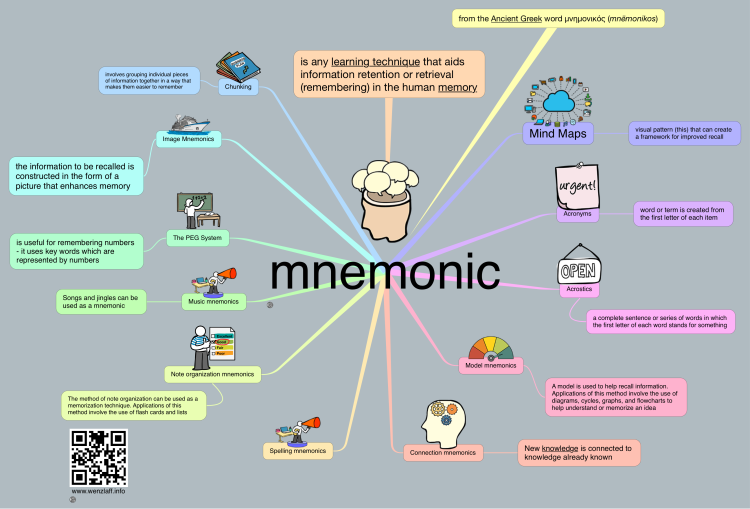Memory Improvement Techniques: Unlock the Power of Your Mind

Introduction
Do you struggle with remembering names, faces, or important information? Are you constantly misplacing your keys or forgetting important dates? If so, you’re not alone. Memory loss is a common problem that affects people of all ages, but the good news is that it can be improved with the right techniques.
In this article, we will explore some of the most effective memory improvement techniques that you can use to boost your brain power and improve your ability to remember and recall information. We will also discuss the science behind memory and how it works, so that you can better understand the strategies that you can use to improve it.
Understanding Memory
Before we dive into the various memory improvement techniques, it’s important to first understand how memory works. The human brain is capable of storing an enormous amount of information, but it can be difficult to access and recall that information when needed.
There are three main types of memory: sensory memory, short-term memory, and long-term memory. Sensory memory is the initial perception of an event or stimulus, and it lasts for only a very short period of time. Short-term memory, also known as working memory, is the ability to hold and manipulate information in your mind for a period of time, typically around 20 seconds. Long-term memory is the ability to store information for an extended period of time, and it is what we typically think of when we talk about “memory.”
Methods For Memory Improvement
Spaced Repetition
- Spaced repetition is a technique that involves revisiting information at intervals, rather than trying to cram it all in at once.
- By spacing out study sessions, you’re able to retain more information in the long-term, rather than forgetting it quickly.
- Spaced repetition can be used with flashcards, where you review the information on the flashcard at increasing intervals.
- Apps like Anki and Quizlet can help automate the process of spaced repetition and make it easier to incorporate into your daily routine.
- Spaced repetition is particularly useful for learning new vocabulary, facts and figures, and other types of information that you want to remember for a long time.
Brain Exercises
- Just like physical exercise is important for your body, brain exercises are important for your mind.
- Brain exercises can help improve cognitive function, memory, and overall brain health.
- Some examples of brain exercises include crossword puzzles, sudoku, and memory games like matching cards or remembering a sequence of numbers.
- Playing musical instruments, learning a new language, and practicing meditation and mindfulness can also be beneficial for your brain.
- Incorporating a variety of brain exercises into your routine can help keep your mind sharp and improve your memory.
Memory Techniques

Mnemonics
Mnemonics are memory aids that help you remember information by associating it with something you already know. For example, the acronym “HOMES” can be used to remember the names of the Great Lakes: Huron, Ontario, Michigan, Erie, and Superior. Other examples include the rhyme “Thirty days hath September” to remember the number of days in each month or the phrase “Please excuse my dear aunt Sally” to remember the order of mathematical operations (Parentheses, Exponents, Multiplication, Division, Addition, Subtraction). Mnemonics can be used to remember lists, facts, and figures, and they are especially useful for memorizing information in a specific order.
Chunking
Chunking is a technique that involves breaking down large amounts of information into smaller, manageable pieces. For example, instead of trying to remember a phone number like “123-456-7890,” you could break it down into three chunks: “123-456-7890.” This makes it easier to remember and recall the information. Chunking can be used to remember phone numbers, addresses, and other important information.
Repetition
Repetition is one of the oldest and most effective memory techniques. It involves repeating information over and over again until it becomes ingrained in your memory. For example, if you need to remember a new vocabulary word, you could repeat it several times throughout the day. The more you repeat the information, the more likely you are to remember it. Repetition can also be used to remember facts, figures, and other important information.
Visualization
Visualization is a technique that involves creating mental images of the information you want to remember. For example, if you need to remember a list of items, you could create a mental image of each item and associate it with a specific location in your house. This technique can be used to remember lists, facts, and figures, and it is especially useful for remembering information in a specific order.
Elaboration
Elaboration is a technique that involves adding personal meaning to the information you want to remember. For example, if you need to remember a new vocabulary word, you could think about a personal experience or a story that is associated with the word. This technique can be used to remember lists, facts, and figures, and it is especially useful for remembering information that is difficult to associate with something else.
Additional Resources
If you’re looking to improve your memory, it’s important to understand that these techniques take practice and dedication. In addition to these memory techniques, there are several other resources available to help you boost your brain power. These include:
- Memory games and puzzles
- Brain-training apps
- Supplements and vitamins
- Meditation and mindfulness practices
- Sleep and stress management
By incorporating these resources into your daily routine, you can give your brain the support it needs to function at its best.
Memory Improvement Conclusion
In conclusion, there are a variety of memory improvement techniques that can help you boost your brainpower and remember things better. Mnemonics, spaced repetition, and brain exercises are just a few of the methods that have been shown to be effective in improving memory. It’s important to find the technique that works best for you and make it a regular part of your daily routine. By incorporating these techniques into your daily life, you can improve your memory, increase your productivity, and live a more fulfilling life.
Frequently Asked Questions
Q: What are some effective ways to improve my memory?
A: Some techniques that have been shown to be effective in improving memory include: mnemonics, spaced repetition, brain exercises, getting enough sleep, and reducing stress.
Q: How can mnemonics help with memory improvement?
A: Mnemonics are mental devices that can help you remember information more easily. They work by associating new information with something that you already know, making it easier to recall. Some examples of mnemonics include the method of loci, where you visualize an object in a specific location, and the acronym method, where you create an acronym out of the words you want to remember.
Q: What are some common causes of memory lapses?
A: Common causes of memory lapses include stress, lack of sleep, certain medications, depression, and anxiety. Other factors, such as aging, can also contribute to memory lapses. Regular exercise, a healthy diet, and adequate sleep can help reduce the risk of memory lapses.



